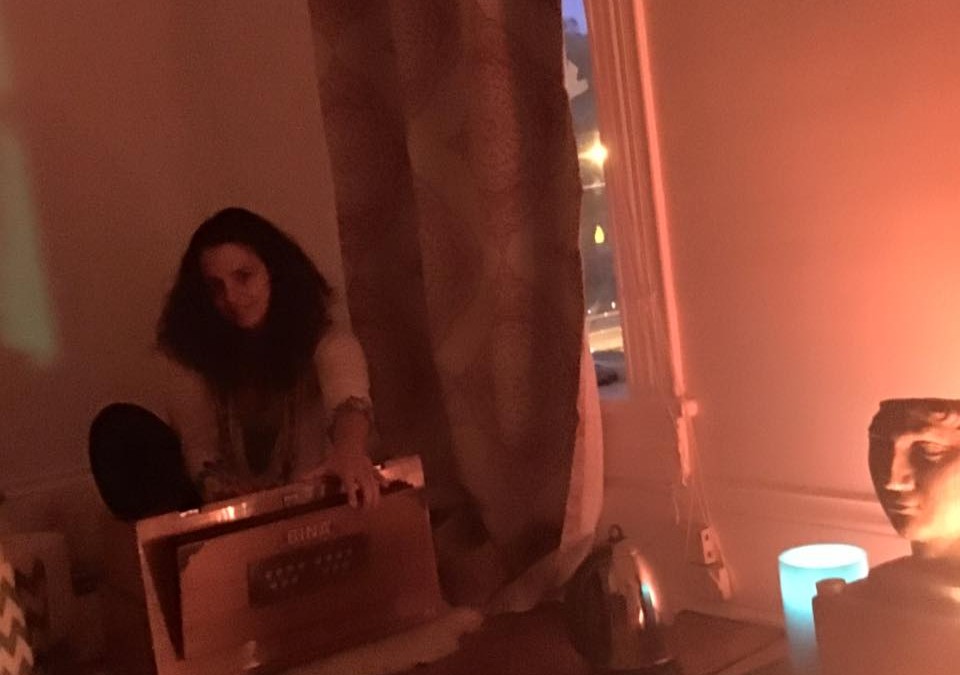
by Brianna | Apr 19, 2021 | Chanting, Healing Yoga Practice, Kirtan, meditation
Chanting is one of my favorite practices. I have loved it for years now but it didn’t start that way. In the beginning the first time a teacher offered a chanting practice I picked up my mat and left. But once I discovered Kundalini Yoga where chanting is an integral practice – chanting became a regular part of my daily life. Music is a form of medicine and our nervous system is particularly tuned to the act of using our voice. This connection is due to the wandering nerve, also known as the vagus nerve or the 10th cranial nerve pair. This nerve innervates the vocal cords and the muscles of the throat (along with the heart, lungs, diaphragm, and digestive track – hence its “wandering” nickname). A sensory and motor nerve the vagus nerve both gives information to the body from the brain and takes information from the body back to the brain. It in many ways sets the tone for our overall resilience and in fact a healthy vagus nerve is one considered to have good tone. Chanting can seem intimidating but in actually it is just singing a repetitive verse or word (mantra). It may seem boring but there is known power in repetition – repetition can in fact relax us. This scientific reality was quantified by Dr. Benson at Harvard in the 70’s when he discovered the relaxation response by studying meditators who used mantra. The relaxation response, rest and digest response or parasympathetic activation (the peace part of your autonomic nervous system) is a zone of healing, peace and calm that is available to...
by Brianna | Feb 11, 2011 | Breathing, Change, Chanting, meditation, Uncategorized
Learning to draw our mind to focus is a powerful tool both on and off the mat. But just like every other part of yoga, meditation, is a practice and imperfection is inherently implied. When we have spent years multitasking and treating life like it is a sprint, is it really any wonder that focusing is a challenge? I know when I first started meditating I thought it meant emptying. Achieving a space of no thought, no awareness – a completely altered state of being. But as humans we are thinking machines, many of you like me have monkey minds that are constantly whirring; no matter how much I tried to just “let go” thought was somehow always there. Over years of practice and many good teachers I finally accepted that meditation is not the absence of thought. Meditation is focused thought without attachment. Very nice right, but now: “what on earth does that mean?” Simply put, meditation is an exercise in focus where what you are focusing on is arbitrary. That is why the breath is such a powerful meditative tool – it is completely unconscious yet it can be made into a conscious act. When the breath is used, you can focus on it but if you stop focusing nothing will happen. It will continue to roll. You will continue to live and all will be well. It then becomes your responsibility to remember that it is the nature of the mind to wander. It is the practice to draw it back to your breath. I think it is also important to realize that meditation, while it...
by Brianna | Feb 4, 2011 | Hypnosis, meditation, practice, Reiki, Yoga
Not to be snotty but I have maintained a daily practice for over a decade. It became my touchstone during a very difficult time and has remained so ever since. Through my practice, I breathe myself into a place of action rather than reaction. Allowing my postures and meditative practices to become a reflection of where I am currently. When you practice something daily, in whatever discipline you choose, that practice will grow and change and shift with time. Although now my practice is a mirror for my current state of being it took a very long time for it to become so. When I first started with Yoga, my type A-personality was desperate for perfection in my practice (and life in general). I forced myself to bend and shift, stretch and strain, even in my meditations. To be honest, there was an unhealthy forcefulness with how I came to the mat and manipulated myself through my practice. After many years of pushing myself in every direction, I went down for the count with chronic fatigue. That time in my life, although it at first appeared like a curse, was really a blessing. Over several years I used Yoga, Reiki, and Hypnosis to heal myself. It was during that time of healing that I realized yoga is not about perfection. Quite simply, that is why it is called: practice. As my perception shifted, how I engaged in practice shifted as well. Instead of force, I began to move to my mat with compassion and make inquiries into the nature of my mind, body, and spirit. Those first few breaths...


